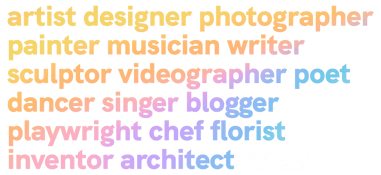
Latest Article: Bitcoin Isn't as Decentralized as You Think. Here's Why.
Freelancer Contracts: Protect Your Income, Assets, and Art
Feeling unsure about freelancer contracts? Learn how these simple agreements safeguard your income, clarify expectations, and empower you to run your creative business with confidence.
BUSINESS
David Kindness, CPA
5/30/2024



Freelancer Contracts: Protect Your Income, Assets, and Art
Updated on May 28, 2024
Written by David Kindness, CPA
Why you can trust Your Creative CPA
Our content is written, edited, or both by industry experts who are creative entrepreneurs just like you. Learn more.
Ever land a dream project, then feel worried later about getting paid fairly or having clear expectations or deadlines? Or maybe you're in the middle of a project, but you're unsure of what the deliverables were or which deadline is coming up next?
Freelancer contracts can help solve these issues by setting expectations, defining deliverables, and determining deadlines before the project even begins. Let's dive into how creative contracts can help ensure that your projects are a win-win for both you and your clients.
Fast Facts About Freelancer Contracts
A contract is a legal agreement between you and a client, outlining project details and expectations.
It protects your income by ensuring you get paid the amount that you and your client agreed to.
It clarifies deadlines, project scope, revision policies, and more.
Contracts empower you to run your business professionally.
What is a Contract?
A contract is an agreement between you and a client or customer to exchange money for products, services, or both. Contracts lay out the details of your project, like what you'll create (your deliverables), how much you'll get paid and when, and when the project needs to be completed. It can even cover what happens if things change during the project, if the project needs to end early, or if your client ends up needing extra work from you.
Contracts are used by all kinds of businesses and individuals - not just creative ones - to define the rights and responsibilities of both parties. They are legally binding, which means you're required to complete the project and the client is required to pay you. This helps protect you if a client ever tries to get out of paying you.
In short, contracts help ensure that you and your clients are on the same page from the start, avoiding any misunderstandings down the road.
Why Should Freelancers Use Contracts?
As a creative freelancer, contracts are your safety net. They ensure you get paid fairly for your hard work. Contracts also prevent confusion about deadlines, project scope (what's included in the project), and how many revisions are included. This keeps everyone happy and focused on creating something amazing!
But contracts aren't just about protecting your income - they also protect your creative assets. Imagine pouring your heart and soul into a project, only to have the client use it in unexpected or unwanted ways. A well-written contract can specify how your work is allowed to be used. This is called "usage rights", and it can define things like where your artwork can be used (websites, billboards, magazines, videos, etc), which individuals and/or brands can or cannot be associated with it, and even how many people can view or interact with it.
Finally, contracts can display your professionalism. Not all businesses feel the need to use contracts, and you may not want to use them with every client, but having a contract shows your clients that you're serious about your business and that you value your work. They build trust and help establish strong working relationships.
What to Include in a Freelancer Contract
Your contract should detail what you'll create (deliverables and project scope), how much you'll get paid and when (payment schedule), project deadlines, how many revisions are included (revision policy), and what happens if the project ends early (termination clause). You may also want to include usage rights to protect your creative work.
Project Scope and Deliverables
Clearly outline what you'll be creating for the client. This could be graphics, web content, illustrations, photos, videos, music, or anything else that falls under your creative umbrella. Be sure to include elements like quantity, duration, locations, the tools you'll use, and any other specifics. If the client asks you to do something that costs time or money, make sure you include it in your contract (and charge them for it).
Payment Schedule
Specify how much you'll be paid, when payments are due, and your preferred payment method (e.g., upfront deposit, 50% upfront and 50% on completion, milestone payments, entire payment upon completion, monthly fees, etc). If the client keeps you on retainer - meaning they pay you each month or quarter for your recurring services - then be sure to specify payment amounts and deadlines.
Deadlines
Set clear deadlines for different stages of the project, as well as the final delivery date. This keeps everyone on track and avoids last-minute scrambles. If your plans could change, then include a section that allows for variations in the deadline to account for these changes.
Revision/Addition Policy
Define if - and how many - revisions are included in your initial fee and how additional revisions will be handled (e.g., hourly rate, flat fee). This protects you from scope creep, which is when the project grows beyond what was originally agreed upon, costing you time and money.
Termination Clause
Outline how the project can be terminated by either party and what happens in such cases. Consider including things like payment for completed work and ownership of unfinished work.
Usage Rights
Usage rights specify how your client can (and cannot) use the creative work you produce for them. The Usage Rights section of your contract can define things like...
Where your work can be used: websites, social media, emails, print materials, videos, ads, etc.
How your work can be used: for example, can the client alter your work? Are there specific modifications they can make, like adding their logo, tagline, or other text for photos, designs, and digital art? Can they add sounds or voiceovers to your music or videos? Can they edit your writing or alter it in any way?
For how long your work can be used: finally, consider specifying how long your work can be used. Usually, you can either specify a limited timeframe or allow your work to be used in perpetuity (AKA forever). You may have the option to charge a recurring fee to keep using your work, although this depends on the client, the project, and the industry you work in.
Pros and Cons of Using Creative Contracts:
Pros
Peace of Mind: Contracts protect you from misunderstandings and non-payment.
Professionalism: They project a polished image and build trust with clients.
Clarity: Contracts ensure everyone is on the same page about expectations.
Cons
Cost: There might be a small cost associated with obtaining a lawyer-approved template.
Time: Creating a contract takes some time upfront.
Legal Considerations: While you can find contract templates online, it's wise to consult with a lawyer if you have complex needs or high-value projects.
How to Create a Contract
Creating a contract might sound like a complicated legal process, and you might be worried about getting something wrong and ending up in trouble. But writing a contract is actually much simpler than you might think. A contract can be either written or verbal, so simply agreeing to work together in an email or DM would be considered a contract under the law. You've probably engaged in multiple verbal or written contracts without even realizing it.
Writing a full contract can also be fairly simple. Here are a few options to get you started...
Write your own: using an app like Google Docs (free), Microsoft Word (paid), or OpenOffice (free) can be a simple and inexpensive way to write a contract. Use the information in this article to ensure you include all the necessary information and sections!
Free online templates: several websites offer free contract templates. These include Signaturely, SmallPDF, Jotform, Bonsai, and more.
Paid online services: there are various legal assistance websites offering a variety of services, including contract templates. These include LegalZoom, Rocket Lawyer, LawDepot, and more. Many of these sites can also help you incorporate your small business, guiding you through the process of how to start an LLC.
Conclusion
Running a creative business can be incredibly rewarding, but unclear expectations and payment issues can quickly steal your joy. Freelancer contracts are powerful tools that safeguard your income, protect your creative assets, and help ensure smooth, successful projects. Utilize creative contracts to help turn your creative hustle into a thriving business.
Frequently Asked Questions (FAQs)
Do I need a contract for every project?
Not necessarily for every tiny project. But it's a good idea to use a contract for many projects, especially if there's a significant amount of money involved or the project is complex. A contract protects you both and ensures everyone is on the same page.
Can I use a freelancer contract template and just edit it?
Yes! Freelancer contract templates are a great way to get started. Just be sure to customize the template with your specific project details, rates, and contact information. Read it carefully and make any necessary edits before using it.
How do I handle a client who doesn't want to sign a contract?
This can be a red flag. Explain the benefits of a contract for both you and the client. It shows professionalism and protects everyone involved. If they're still hesitant, consider walking away from the project to avoid potential problems down the road.
What if I need to make changes to the contract after we've already signed it?
If both you and the client agree to changes, put the amendments in writing and have both parties sign the updated contract. This ensures everyone is on the same page about the new terms.
Is there anything else I can do to protect myself as a freelancer besides using contracts?
Absolutely! Here are some additional tips:
Get everything in writing: Don't rely solely on verbal agreements. Even if you don't have a formal contract, put key project details and agreements in writing via email or another communication method.
Track your time: Especially if you bill by the hour, keep good records of the time you spend on the project.
Use online payment tools: Consider using online payment processors like PayPal or escrow services to ensure you receive payment before delivering your final work.
Build trust with your clients: The best way to protect yourself is to develop strong working relationships with your clients. Communicate clearly, deliver high-quality work on time, and be professional in all your interactions.
Can a freelancer contract protect me from a client who doesn't pay?
A contract can help, but it doesn't guarantee payment. If a client breaches the contract by not paying, you might need to take legal action to collect what you're owed. Consulting with a lawyer can help you understand your options in such situations.
Disclaimer: the information provided in this article is for educational purposes only and does not constitute tax, accounting, investing, legal, or financial advice. The information in this article does not take into account your unique financial or business situation or goals, and YCCPA cannot be responsible for reader's financial decision-making. YCCPA's goal is to educate and support you on your creative business journey.
Written by David Kindness, CPA
David is a CPA (Certified Public Accountant) and professional photographer, videographer, and designer based in San Diego, California. Learn more.




supported by ads
Your Creative CPA is supported by the ads you see in our articles and guides.
These ads help us help creatives like you.
READ NEXT
What is an Income Statement? A Creative Entrepreneur's Guide
2024 Guide to Deducting Expenses For Your Creative Business
What Counts as Income in a Creative Business? A Guide for Online Creators

financial wisdom for creatives, by creatives
Created by David Kindness
Copyright 2025 Terms






